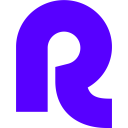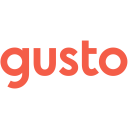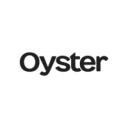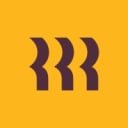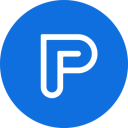Deel vs Remote: Exploring the best remote work platforms
- 01Deel vs Remote: overview
- 02What's the difference between Deel and Remote?
- 03Deel pros and cons
- 04Remote pros and cons
- 05Deel compared to Remote
- 06Remote compared to Deel
- 07Features comparison
- 08Deel vs Remote: Which is the best for your business?
- 09Promotions on Payroll Management software
- 10Alternatives to Deel & Remote
Access up to $500 savings on Deel & $1,677 on Remote
Remote
20% off for the first year
Access up to $500 savings on Deel & $1,677 on Remote
Navigating the realm of remote work platforms can be daunting, especially with the abundance of options available. In this digital age, where remote work has become the norm, selecting the right platform is crucial for efficient operations and seamless collaboration.
To assist you in this endeavor, we present a thorough comparison between two prominent contenders: Deel and Remote. We'll examine their features, functionality, and suitability for various business needs. By dissecting their strengths and weaknesses, we aim to provide you with the insights needed to make an informed decision.
Deel vs Remote: overview
Deel and Remote emerge as two prominent players in the realm of remote work platforms, each offering a unique set of features tailored to meet the diverse needs of businesses and freelancers alike.
Deel is renowned for its user-friendly interface, simplifying processes such as global payments, compliance management, and contract generation. It boasts seamless integration with popular tools and services, coupled with robust security measures to safeguard sensitive data and transactions. On the other hand, Remote stands out for its comprehensive suite of remote work solutions, including payroll management, time tracking, and tax compliance features.
Embarking on a Deel vs Remote comparison, our goal is to provide you with a comprehensive analysis that aids in selecting the platform that best aligns with your organization's remote work requirements. By exploring their respective strengths and weaknesses, you'll gain valuable insights to make an informed decision that enhances your team's productivity and efficiency in the remote work landscape.
What's the difference between Deel and Remote?

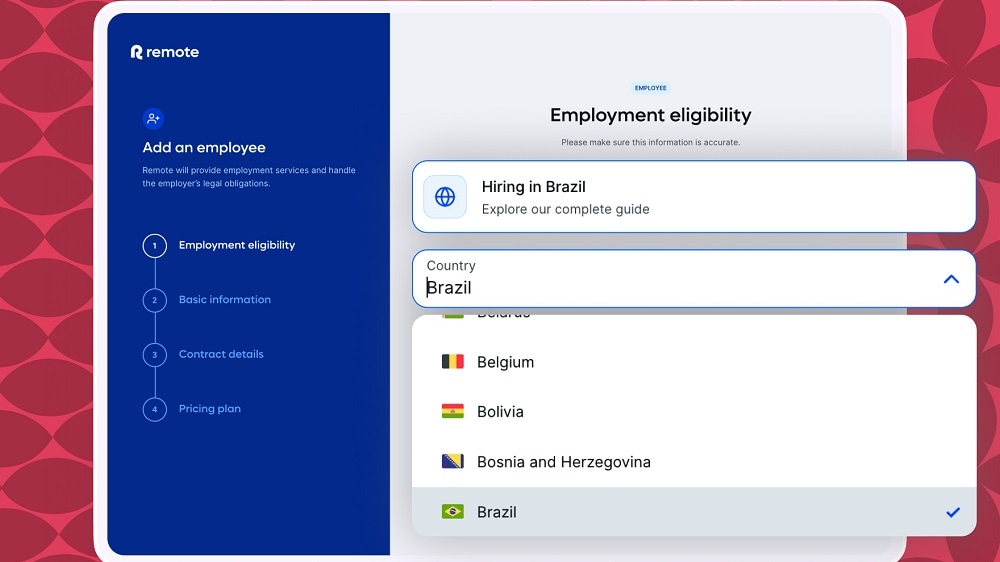
Deel and Remote, two prominent remote work platforms, present distinct approaches to facilitating remote collaboration, managing payroll, and ensuring compliance. The primary difference between the two lies in their feature sets, target audiences, and pricing structures.
Deel is known for its intuitive interface and comprehensive suite of tools tailored specifically for remote teams and freelancers. It excels in simplifying complex processes such as global payments, tax compliance, and contract generation. Deel's platform integrates seamlessly with popular tools and services, offering users a streamlined experience combined with robust security measures to safeguard sensitive data and transactions. It primarily targets businesses and freelancers seeking an all-in-one solution for remote work management.
In contrast, Remote offers a broader range of services beyond remote work facilitation, including payroll management, time tracking, and compliance solutions. While Remote also caters to remote teams and freelancers, its focus extends to larger enterprises and organizations with complex HR and payroll needs. Remote's platform provides versatile functionality and scalability, making it suitable for businesses of all sizes operating in remote or hybrid work environments.
Regarding pricing, Deel and Remote both offer tiered plans tailored to the needs of different users. Deel's pricing typically reflects its feature-rich offerings, catering to businesses and freelancers requiring advanced remote work solutions. On the other hand, Remote may appeal to a broader audience with its flexible pricing options and scalability, accommodating the diverse needs and budgets of businesses ranging from startups to established enterprises.
In summary, while both Deel and Remote aim to streamline remote work operations and enhance team productivity, their differences lie in their feature sets, target audiences, and pricing structures.
Deel pros and cons
What are the advantages of Deel?
- Streamlined global payments: Deel simplifies the process of making international payments to freelancers and remote workers, offering multiple payment methods and currencies, reducing transaction fees, and ensuring compliance with local regulations.
- Comprehensive compliance management: Deel helps businesses navigate complex compliance requirements, including tax regulations, labor laws, and employment contracts across various jurisdictions, reducing the risk of legal issues and penalties.
- Efficient onboarding: Deel offers a user-friendly platform for onboarding freelancers and remote employees, facilitating the creation and signing of contracts, verification of identity and credentials, and seamless integration with HR systems for streamlined management.
- Enhanced security measures: Deel prioritizes the security of sensitive data and transactions, implementing robust encryption protocols, two-factor authentication, and regular security audits to protect against cyber threats and unauthorized access.
- Dedicated customer support: Deel provides responsive customer support to address inquiries, resolve issues, and assist users with navigating the platform, ensuring a positive experience for both businesses and freelancers.
What are the disadvantages of Deel?
- Pricing complexity: While Deel offers various pricing plans tailored to the needs of different users, the pricing structure can be complex, with additional fees for certain features and services, potentially leading to confusion or unexpected costs for businesses.
- Limited integration options: Although Deel integrates with popular tools and platforms for payroll, HR, and accounting, the range of integration options may be limited compared to other remote work platforms, potentially requiring additional manual processes for data synchronization.
- Language and localization challenges: Deel may face challenges in providing comprehensive language support and localization for users operating in non-English-speaking countries, potentially hindering accessibility and usability for international users.
- Scalability constraints: While Deel is suitable for businesses of various sizes, including startups and SMEs, larger enterprises with complex remote work operations may find scalability limitations in terms of customization, performance, and support for high-volume transactions.
- Learning curve for new users: Despite its user-friendly interface, Deel may have a learning curve for new users, particularly those unfamiliar with remote work platforms or international payment systems, requiring time and resources for training and adaptation.
Compare Deel to other tools
Remote pros and cons
What are the advantages of Remote?
- Comprehensive remote work solutions: Remote offers a wide range of features and tools to support remote work, including payroll management, time tracking, compliance solutions, and employee onboarding, providing businesses with a comprehensive platform to streamline remote operations.
- Scalability and customization: Remote is scalable and customizable, catering to businesses of all sizes and industries with diverse remote work needs. Its flexible platform allows for easy adaptation to evolving business requirements and growth trajectories.
- User-friendly interface: Remote prioritizes usability and simplicity, with an intuitive interface that facilitates easy navigation and accessibility for users. Its clean design and organized layout enhance user experience and productivity.
- Strong security measures: Remote prioritizes data security and privacy, implementing robust encryption protocols, multi-factor authentication, and regular security audits to protect sensitive information and prevent unauthorized access or breaches.
- Responsive customer support: Remote provides responsive customer support to address user inquiries, resolve issues, and provide assistance with platform navigation and usage, ensuring a positive experience for businesses and employees.
What are the disadvantages of Remote?
- Pricing complexity: While Remote offers flexible pricing plans to accommodate businesses of various sizes and budgets, the pricing structure may be complex, with additional fees for certain features or usage tiers, potentially leading to confusion or unexpected costs for users.
- Integration limitations: Remote's integration options with third-party tools and platforms may be limited compared to other remote work solutions, potentially requiring manual processes or workarounds for data synchronization and workflow automation.
- Localization challenges: Remote may face challenges in providing comprehensive language support and localization for users operating in non-English-speaking countries, potentially impacting accessibility and usability for international users.
- Learning curve for new users: Despite its user-friendly interface, Remote may have a learning curve for new users, particularly those unfamiliar with remote work platforms or HR management systems, requiring time and resources for training and adaptation.
- Reliance on internet connectivity: Remote work relies heavily on internet connectivity, and any disruptions or downtime in internet service can hinder productivity and communication among remote teams, potentially impacting business operations and deadlines.
Deel compared to Remote
Deel and Remote are both prominent platforms for managing remote work, each offering distinct features and benefits. Deel excels in simplifying global payments and compliance management, making it ideal for businesses with international teams. Its streamlined onboarding process and robust security measures ensure efficient operations.
On the other hand, Remote offers a comprehensive suite of remote work solutions, including payroll management and time tracking, catering to businesses of all sizes. While Deel prioritizes payment processing and compliance, Remote provides a broader range of features for holistic remote work management.
Is Deel better than Remote?
Choosing between Deel and Remote hinges on a company's specific needs for managing its remote workforce. If the core requirement is to navigate the complexities of international payments and ensure compliance with global regulations efficiently, Deel stands out as the superior choice. Its focus on making cross-border transactions smooth and secure, coupled with an easy onboarding process, makes it highly attractive for businesses with employees scattered across different countries.
Conversely, for organizations looking for an all-encompassing solution that not only handles payroll but also includes time tracking and a wider array of remote management tools, Remote presents itself as a more versatile option.
What is Deel best used for?
Deel is best used for streamlining global payments and compliance management for businesses with remote teams and freelancers. Its intuitive platform simplifies the complexities of international payments, ensuring timely and secure transactions while adhering to local regulations.
Deel's comprehensive compliance solutions cover tax regulations, labor laws, and contract management across various jurisdictions, reducing the risk of legal issues and penalties. With features designed to facilitate efficient onboarding and contract generation, Deel enables businesses to seamlessly manage their remote workforce while maintaining compliance and security. Overall, Deel is an ideal solution for businesses seeking to optimize their remote work operations while ensuring financial and legal compliance.
Can Deel replace Remote?
While Deel offers robust features for streamlining global payments and compliance management, it may not fully replace Remote for all businesses. Remote provides a comprehensive suite of remote work solutions, including payroll management, time tracking, and HR management, catering to a broader range of business needs.
While Deel excels in specific areas such as payment processing and compliance, Remote offers a more holistic approach to remote work management. Whether Deel can replace Remote depends on the specific requirements and priorities of the business. It may serve as a complementary tool or an alternative solution for certain aspects of remote work management.
Is Deel cheaper than Remote?
Determining whether Deel is cheaper than Remote depends on various factors such as the specific features and services required by the business, as well as the size and scale of operations. Deel and Remote both offer flexible pricing plans tailored to different user needs, with pricing structures that may vary based on usage tiers and additional features.
While Deel’s pricing structure may offer competitive pricing for its core services such as global payments and compliance management, Remote's comprehensive suite of remote work solutions may provide better value for businesses requiring a broader range of features.
Is there a better Payroll Management software than Deel?
When considering remote work platforms, it's essential to assess if there's a better software than Deel that aligns more closely with your specific requirements.
Several alternatives to Deel in the remote work platform space include Remote, Gusto, Papaya Global, and RemoteTeam. The decision on which platform to choose hinges on factors such as compliance needs, payment processing efficiency, user interface preferences, and scalability requirements. While Deel stands out for its streamlined global payments and compliance management, other platforms may offer unique features, different pricing models, or integrations that better suit your remote work management needs and objectives.
$500 in credits on Deel
Get $500 in credits on Deel and up to $500 savings with Secret.
Remote compared to Deel
Remote and Deel are both prominent platforms for managing remote work, yet they offer distinct features and benefits. Remote excels in providing a comprehensive suite of remote work solutions, including payroll management, time tracking, and compliance management, catering to businesses of all sizes. Its versatility and scalability make it suitable for a wide range of industries and remote work scenarios.
On the other hand, Deel focuses on streamlining global payments and compliance management for businesses with international teams and freelancers. Its intuitive platform simplifies payment processing and ensures compliance with local regulations.
Is Remote better than Deel?
The debate over whether Remote is superior to Deel largely depends on the organizational priorities and the specific challenges they face in managing a remote workforce. Remote's strength lies in its comprehensive approach to remote work management, offering an extensive set of tools that encompass payroll, time tracking, and compliance in a single platform. This holistic solution is particularly advantageous for companies seeking a unified system to manage diverse aspects of remote work seamlessly.
In contrast, Deel's specialization in facilitating international payments and navigating compliance issues is highly beneficial for businesses heavily engaged in global operations. Therefore, companies prioritizing a wide-ranging solution for remote work management might find Remote more aligned with their needs, appreciating its ability to address multiple challenges through a single interface.
What is Remote best used for?
Remote is best used for facilitating seamless remote work operations across diverse industries and organizational structures. Its comprehensive suite of features includes payroll management, time tracking, compliance solutions, and employee onboarding, making it ideal for businesses of all sizes transitioning to remote or hybrid work models.
Remote's versatility and scalability enable it to cater to the specific needs of startups, SMEs, and large enterprises alike, providing tailored solutions for efficient remote workforce management. With its user-friendly interface and robust security measures, Remote empowers businesses to optimize productivity, streamline HR processes, and ensure compliance with remote work regulations.
Can Remote replace Deel?
Determining if Remote can replace Deel depends on the specific requirements and priorities of the business. While Remote offers a comprehensive suite of remote work solutions, including payroll management, time tracking, and compliance management, Deel specializes in streamlining global payments and compliance for businesses with international teams and freelancers.
Whether Remote can replace Deel hinges on factors such as the extent of payment processing needs, compliance requirements, and the desired level of integration with other remote work tools.
Is Remote cheaper than Deel?
Determining if Remote is cheaper than Deel depends on various factors such as the specific features needed and the scale of operations.
While Remote’s pricing structure may offer competitive pricing for its comprehensive suite of remote work solutions, including payroll management and compliance tools, Deel specializes in streamlining global payments and compliance for businesses with international teams and freelancers. The comparative costs of both platforms also depend on factors such as transaction volumes, currency conversion fees, and additional features required.
Is there a better Payroll Management software than Remote?
When considering alternatives to Remote in the realm of remote work platforms, it's crucial to determine if there's a better software that better suits your specific business requirements.
Several notable alternatives to Remote in the remote work platform landscape include Deel, Rippling, Lano, Workday HCM, and Zenefits.
Choosing the right remote work platform depends on factors such as your company's size, industry, remote work needs, and budget constraints. While Remote offers a comprehensive suite of remote work solutions, other pl
20% off for the first year on Remote
Get 20% off for the first year on Remote and up to $1,677 savings with Secret.
Features comparison
Deel's Enhanced Time Tracking Streamlines Team Management

When comparing Deel and Remote, Deel's built-in time tracking feature emerges as superior. Deel offers automated timesheet generation and ensures compliance with labor laws, simplifying the process of tracking team hours. For example, Deel automatically calculates overtime hours based on local regulations, reducing the risk of legal issues for businesses.
Additionally, Deel provides detailed reports on employee hours worked, facilitating payroll processing and project management. In contrast, Remote lacks a comparable time tracking feature, potentially leaving businesses without the tools needed to effectively monitor and manage team productivity.
Deel Simplifies Hiring with Comprehensive Automation

While both tools offer options to streamline the hiring process, Deel distinguishes itself by simplifying the entire hiring process significantly. Deel's comprehensive automation capabilities fully automate legal document collection, tax generation, contract formation, and signing.
For example, Deel's platform automatically generates tax forms such as W-9s and W-8BENs based on the user's location and tax residency status, reducing manual errors and speeding up the hiring process. In contrast, Remote may rely more on local HR teams for certain aspects of the hiring process, potentially leading to delays and increased administrative burden for businesses.
Remote's Dedicated Legal Experts Ensure Ongoing Compliance

While Deel boasts robust compliance features during the hiring process, Remote takes the lead in maintaining ongoing compliance with the help of dedicated local legal experts. These representatives possess a comprehensive understanding of the compliance requirements in each operational country, offering businesses valuable insights and guidance to navigate complex regulatory landscapes.
For example, Remote's legal experts assist businesses in staying up-to-date with changes in labor laws, tax regulations, and employment policies, ensuring ongoing compliance and mitigating the risk of legal issues. This proactive approach to compliance management gives Remote an advantage over Deel, providing businesses with peace of mind and regulatory assurance.
Deel Leads the Way with Extensive Integration Capabilities

When it comes to integrations, both Deel and Remote offer impressive capabilities. However, Deel edges out Remote with its wide range of integration possibilities. Deel supports integrations with many popular project management and accounting software, such as Asana, QuickBooks, Slack, and more, providing seamless connections that can streamline workflows and reduce manual tasks for teams.
For instance, Deel seamlessly integrates with popular HR software like BambooHR, enabling automatic syncing of employee data for payroll processing. On the other hand, Remote's integration options are more limited, thus making Deel a more versatile tool for businesses wanting to integrate their workflow with other platforms.
Remote's Country-Specific Healthcare Benefits Enhance Employee Well-being

One unique advantage Remote holds is its access to country-specific healthcare benefits. This feature caters to the well-being of employees by providing access to healthcare services tailored to each country's requirements.
For instance, Remote offers health insurance plans that comply with local regulations and cover essential medical expenses such as doctor visits, prescriptions, and hospital stays. This gives Remote an edge over Deel, which doesn't offer a similar feature, potentially making it a more attractive option for businesses seeking to prioritize employee health and welfare across diverse geographic locations.
Deel Stands Out for User-Friendly International Payroll Management

Both Deel and Remote are powerful tools for managing your business's international payroll, but when it comes to ease-of-use, Deel takes the lead. Deel's user interface is intuitive and easy-to-navigate, offering a smooth onboarding experience for first-time users. The platform offers step-by-step guides and 24/7 customer support, ensuring that businesses can set up and start managing their global teams with minimal hiccups.
For instance, Deel provides customizable templates for creating compliant contracts and straightforward payment processing features. In contrast, Remote, while comprehensive in its features, has a more complex interface, which may require a steeper learning curve for new users.
Deel's Comprehensive Global Payment Integration Simplifies International Transactions

Deel stands out with its integrated global payment system that addresses all common concerns such as conversion rates, various payment methods, and related accounting issues. For instance, Deel automatically converts currencies at competitive rates, offers multiple payment methods including bank transfers and e-wallets, and provides detailed transaction reports for accounting purposes.
Additionally, Deel ensures compliance with international regulations, reducing the risk of legal issues associated with cross-border payments. In contrast, while Remote promises punctual international payments, it doesn't address these complexities, potentially causing additional stress for businesses dealing with international payments and requiring manual intervention for currency conversion and accounting reconciliation.
Subscribe to our newsletters.
No FOMO here. Stay up-to-date on all the latest deals and news with our monthly newsletter straight to your inbox like 110,000+ entrepreneurs (+ Get 10% off on on our Premium Membership!)
Deel vs Remote: Which is the best for your business?
Deel is the best tool for you if:
- Your business operates on a global scale and you require a streamlined solution for managing payments to employees and contractors in different countries, ensuring compliance with local laws.
- You prioritize an efficient onboarding process for new international team members, seeking to simplify the complexities of legal and payment setups across various jurisdictions.
- Security and data protection are top concerns for your organization, and you need a platform with robust measures in place to safeguard sensitive financial and personal information.
- You're looking for a customizable payment solution that can handle multiple currencies and payment methods, making it easier to adapt to the diverse preferences of your global team.
- The ease of use and intuitive interface are important to you, offering a user-friendly experience for both administrators and employees, reducing the time spent on administrative tasks.
Remote is the best tool for you if:
- You value a comprehensive suite of remote work solutions that include payroll, benefits management, and compliance, all integrated into one platform for seamless remote workforce management.
- Scalability is key to your business, and you need a service that can grow with you, offering flexible solutions for companies of all sizes, from startups to enterprises.
- Your focus is on ensuring a high level of employee satisfaction with seamless management of benefits, payroll, and personal data, enhancing the overall work experience for remote teams.
- You are seeking advanced features like time tracking and international talent hiring, providing you with the tools to manage and expand your remote team efficiently and effectively.
- The ability to navigate complex global compliance requirements effortlessly is crucial for your business, ensuring that your remote work practices adhere to local laws and regulations worldwide.
Alternatives to Deel & Remote
Promotions on Payroll Management software
Start saving on the best SaaS with Secret.
Secret has already helped tens of thousands of startups save millions on the best SaaS like Deel, Remote & many more. Join Secret now to buy software the smart way.


